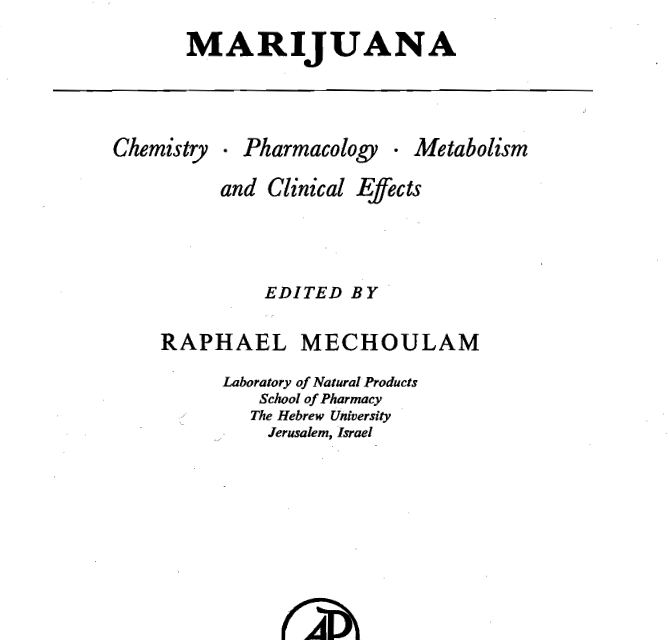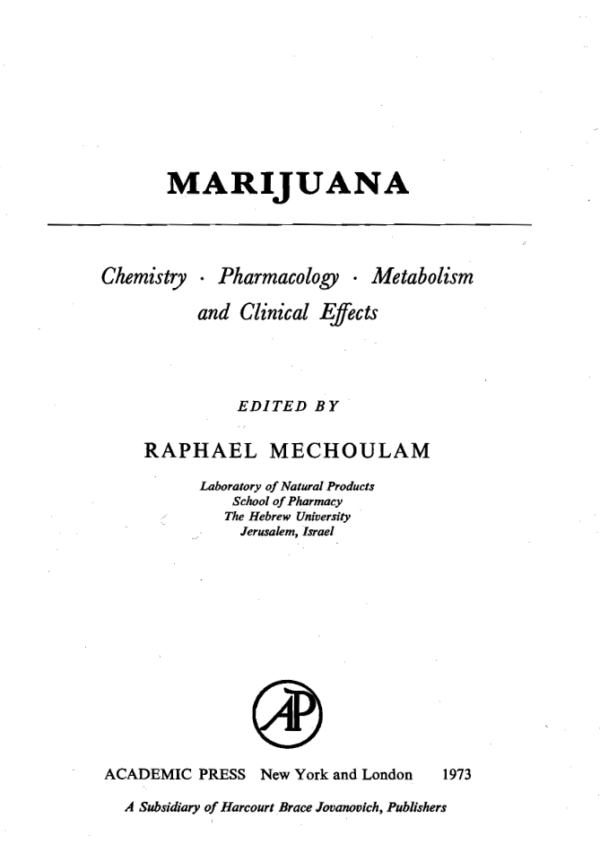From Raphael Mechoulam’s preface to an anthology published in 1973:
… The aim of this book is to present the state of the art in cannabis chemistry, in pharmacology, and in the clinic. Although numerous symposia and reviews on cannabis have been published there has not been a book covering all these aspects. I believe that we have answered a need rather than just burdened the library budgets. The chemical chapters, for reasons stated above, present a more complete picture than the metabolic and pharmacological ones. In the latter the gaps in our knowledge are obvious and present a challenge. The most pressing need seems to be for more detailed information on human metabolism and long-term effects of cannabinoids.
Clinical publications differ from laboratory ones: the latter are experimental, the former are frequently just observational This dichotomy is clearly reflected in the last chapter. Most of the papers cited describe “cases” rather than “experiments.” Hence the conclusions drawn may not be accepted as readily by the reader as those of the previous chapters. I believe, however, than in a field so full of contradictions and heated debate the material has been presented objectively.
…To quote Dean Gerald Le Dain, head of the Canadian Royal Commission on the Non-Medical Use of Drugs: “In the end, the decisions in this field are very complex moral decisions based on a number of imponderables and competing values, and in many cases they involve a choice of the lesser of evils. There are few easy choices. There is no way that these kind of decisions can be passed over to experts. In the end, they will have to be handed back to [the public].”
Note that for brilliant, analytical Raphael Mechouam, the key factor in evaluating case reports is the clinicians’ objectivity. The recent publication in Epilepsy & Behavior of findings by cannabis clinicians came about because Orrin Devinsky, MD, one of the co-editors of the special issue on Cannabis, treats patients who are also seen by Dustin Sulak, DO, and Devinsky recognized Sulak as a trustworthy source of information.






